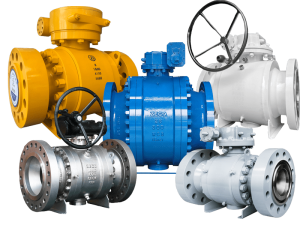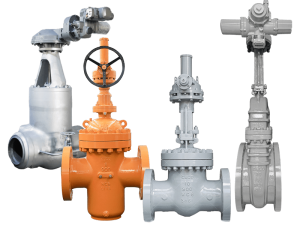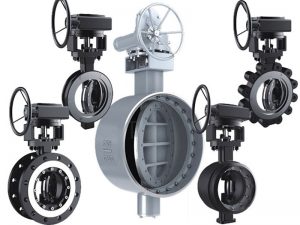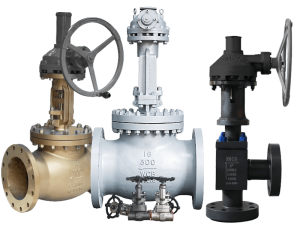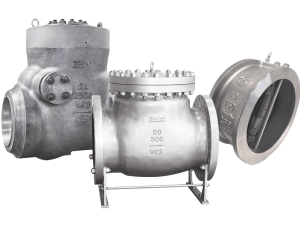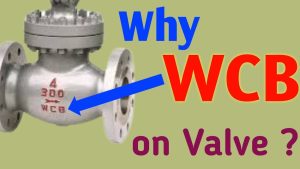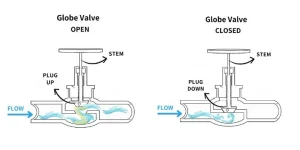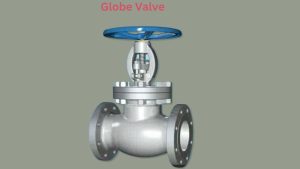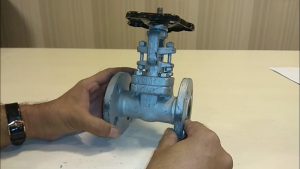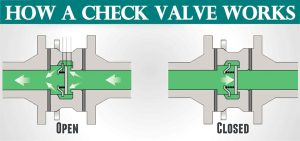Ball valve and butterfly valve are two kinds of valves which are most widely used in today’s valves. They are easy to operate and play a role of cut-off and cut-off for pipeline medium.
What is a ball valve?
The ball valve is mainly used to cut off, distribute and change the flow direction of the medium in the pipeline. It can be closed tightly with only 90 degree rotation and a small rotation torque. There are many kinds of classification. According to function, it can be divided into bypass valve, air valve, pressure relief valve, blowdown valve, etc.; according to transmission, it can be divided into pneumatic ball valve, electric ball valve, hydraulic ball valve, pneumatic ball valve, electric hydraulic ball valve, turbine driven ball valve, etc.; according to shell / main material, it can be divided into metal material valve, metal body lining valve, non-metal material valve, etc.
What is a butterfly valve?
Butterfly valve, also known as flap valve, is a simple control valve, mainly composed of valve body, valve rod, butterfly plate and sealing ring. The valve body is cylindrical with short axial length and built-in butterfly plate. There are also many classifications. According to the driving mode, it is divided into electric butterfly valve, pneumatic butterfly valve, hydraulic butterfly valve, manual butterfly valve, etc.; according to the structural form, it is divided into central sealing butterfly valve, single eccentric sealing butterfly valve, double eccentric sealing butterfly valve, three eccentric sealing butterfly valve, etc.; according to the working pressure, it is divided into vacuum butterfly valve, low-pressure butterfly valve, medium pressure butterfly valve, high-pressure butterfly valve, ultra-high-pressure butterfly valve, etc. According to the connection mode, it can be divided into wafer type butterfly valve, flange butterfly valve, lug butterfly valve, welding butterfly valve, etc.
Different structure of ball valve and butterfly valve
In terms of the structure, the biggest difference between them is the opening and closing parts. The opening and closing parts of the butterfly valve are a plate, while the opening and closing parts of the ball valve are a ball. The flow of the butterfly valve can be adjusted through the opening degree, but the ball valve can not be adjusted.
Butterfly valve is composed of four parts: valve body, valve seat, valve plate and valve rod. Its accessories are exposed and can be seen by eyes. While ball valve is composed of valve body, valve core (a round ball) and valve rod. The valve core is in the valve body and only some parts of it can be seen by eyes.
Different tightness and caliber of ball valve and butterfly valve
The characteristics of the butterfly valve are fast opening and closing speed, simple structure and low cost, but the tightness and pressure capacity are not good. The ball valve can quickly open and close, and can achieve complete sealing under high pressure and temperature. So in comparison, the sealing performance of the ball valve is better than that of the butterfly valve. However, due to the limitation of volume and opening and closing resistance, the ball valve is difficult to achieve a large diameter, and the structural principle of the butterfly valve is particularly suitable for making large diameter valves.
Different temperature and withstand voltage of ball valve and butterfly valve
From the point of view of service temperature, due to the sealing material and structure, ball valve is not suitable for steam medium, while butterfly valve can be used for conventional saturated steam medium for heating (below 350 ℃).
The structure of butterfly valve is relatively simple, and butterfly valve is generally used for low pressure, while the structure of ball valve is relatively complex, more resistant to high pressure.
Different Operating torque of ball valve and butterfly valve
In terms of operating torque, the butterfly valve is a three eccentric metal seal butterfly valve, so its opening and closing torque is very small. With the increase of the diameter of the ball valve, the contact area of the sealing surface also increases squarely, so the opening and closing torque of the large diameter ball valve will be very large.

